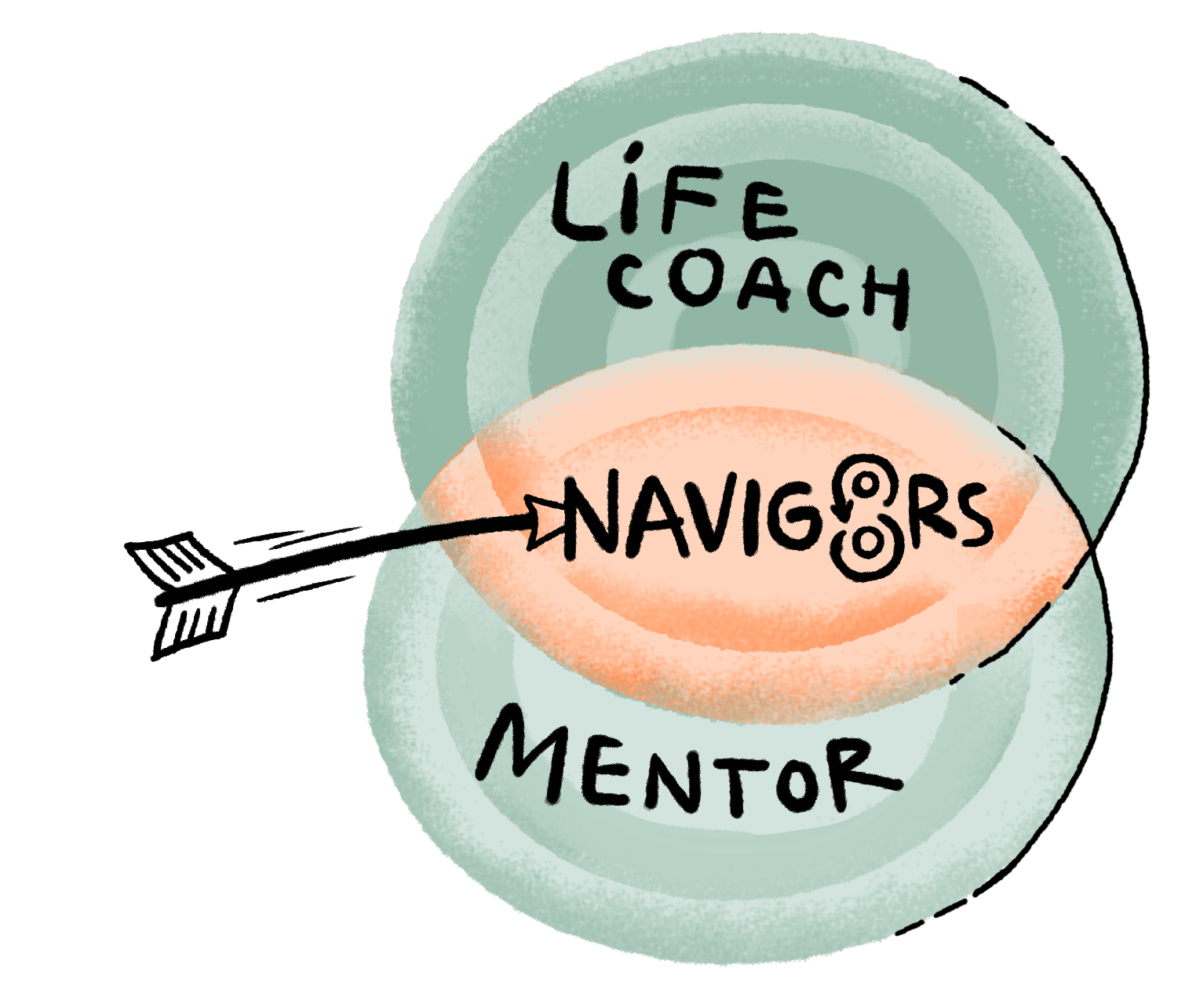The Difference Between Mentoring and Life Coaching

There are many styles of mentoring. From formalised workplace mentoring with a colleague or peer to one-to-one, informal mentoring in the comfort of your own home, there are as many approaches to mentoring as there are Mentors and Mentees. That being said, one thing people often confuse is the difference between a Mentor and a life coach. In this article, we’d like to clear up that confusion by digging into the difference between the two and why we believe that mentoring is the stronger option.
Mentor VS Life Coach: What Are The Key Differences?

Let’s start with some definitions. A Mentor is someone who helps people to achieve their goals. Simple, right? They’re someone with experience who can give specific advice and help people to work through their problems.
A life coach is different. Life coaches don’t need personal experience in the goal they’re trying to help with. They’re simply an encouraging voice who knows how to ask the right questions and help people to find a solution themselves.
To give them their credit, there is a real value to life coaching. There’s no better lesson than one you learn by working it out yourself and well trained life coaches are experts at pushing people towards finding their own answers. They’re like a wall to bounce ideas off of – excellent at helping you get where you need to go, so long as you’re willing to put the work in.
A Mentor, on the other hand, is more of an active participant in their Mentee’s goals. They’re not just helping people find the answers but providing a useful source of information. Pulling from their own experiences, a Mentor can actually tell their Mentee which step to take next rather than simply encouraging them to find it on their own.
Addressing Goals: What Are Your Expectations and Scope?
If the strength of a life coach is that they can help people to find answers on their own, then you may be wondering why you would choose to work with a Mentor. Wouldn’t it be better to put the work in yourself?
Ultimately, this comes down to two factors – what your goals are, and how quickly you’re looking to achieve them. Working with a life coach can be a great style of informal mentoring but it places the bulk of the responsibility on the Mentee.
In practice, what this means is that life coaches are excellent for helping their clients work through issues like motivation or deciding upon a pragmatic course of action, but they probably won’t be able to answer simple questions like ‘which qualifications would I need for this job role?’ or ‘who should I contact to set up an interview?’
Relationship Dynamics: Exploring Formality and Connection
So with all this in mind, you may still be wondering why we feel Mentors are more useful than life coaches for most scenarios. The answer is really quite simple: a life coach might be able to ask questions but they can’t answer them, while a great Mentor can do both.
Some online Mentoring platforms are very skills focused. They treat a Mentor like a teacher – someone with knowledge that needs to be imparted. Here at Career Navig8r, we feel that a Mentor can be more with just one simple change.
Instead of mentoring based on skills, our platform is designed to encourage mentoring based on job roles. When a Mentee signs up to the platform they simply search the role they one day hope to occupy and they’ll be able to find someone who already works that role.
This small and simple change can completely alter the dynamic of a mentoring relationship. Getting a job and learning a skill are, after all, two different things. Getting a job requires a more focused approach, encouraging Mentors and Mentees to work as a team with the same end goal in mind.
And the best part is it’s not just for those looking for work. Many who are new to a job role often find that they’re facing challenges they’ve never encountered before. Being able to find someone with more experience allows them to brainstorm ideas and work through issues with someone who’ll personally relate to their situation.
At the end of the day, life coaching and traditional mentoring both have their strengths but here at Career Navig8r we’ve found a third option – one that combines the best of both worlds. We call our Mentors Navig8rs because we feel that the role of a Mentor should be to navigate you through your career journey.
A Navig8r is a person who can show their Mentee where to go, tailoring their advice towards specific goals and helping to talk through and solve problems unique to the Mentee. Even better, with the right mindset, being a Navig8r is easy.
As a Navig8r, you’ve already done the hard part by acquiring your years of skills and knowledge. Now you get to reap the rewards by taking someone else through that process in a friendly, informal mentoring space.
Are you ready to share your skills? Are you ready to help people take their career to the next level and make the most of your experience? If so, then sign up at CareerNavig8r.com today to start your mentoring journey.


